BMW has embraced sustainability as a core principle, transforming how vehicles are designed and manufactured. By integrating bio-based materials into their production processes, they are reducing their environmental impact while setting new standards for innovation. These materials, derived from renewable resources, offer a unique advantage.
“Bio-based materials such as natural fibers used to reinforce polymers have a significantly lower environmental footprint, as the plant absorbs carbon dioxide during growth, and it is sequestered in the automotive part.”
BMW’s commitment to sustainability is evident in their measurable progress. For instance, their CO₂ emissions dropped from 116 g/km in 2021 to 102.1 g/km in 2023. This achievement reflects their dedication to creating a greener future. With BMW bio-based carbon components, you can experience enhanced efficiency and durability without compromising performance.
Key Takeaways
-
BMW uses plant-based materials to help the environment and improve cars.
-
Using plants like flax and hemp cuts pollution and helps the planet.
-
Working with creative companies helps make eco-friendly car materials.
-
Plant-based parts make cars use less fuel and last longer.
-
BMW designs cars to recycle easily and create less trash.
The Benefits of Bio-Based Materials in Sustainability
Reducing Emissions with Bio-Based Materials
Bio-based materials offer a transformative way to reduce emissions and support a greener future. These materials have significantly lower lifecycle emissions compared to traditional options. Emerging bio-based products, on average, cut greenhouse gas emissions by 45%, with some categories achieving reductions as high as 73%. For example, biorefinery products demonstrate remarkable efficiency, reducing emissions by up to 73%, while bioadhesives achieve a 19% reduction. By choosing bio-based materials, you contribute to BMW’s ambitious carbon neutrality goals and help pave the way for zero emissions in the automotive industry.
“Switching to bio-based materials not only lowers your environmental footprint but also accelerates the journey toward sustainable mobility.”
Renewable Resources for Sustainable Solutions
The use of renewable resources in bio-based materials ensures a sustainable approach to manufacturing. BMW incorporates plant-based and agricultural waste materials into their designs, reducing reliance on finite resources like petroleum. Natural fibers such as flax, hemp, and jute play a pivotal role in creating durable and eco-friendly components. For instance, flax is used in yarns, hemp in interior materials, and jute in door trims. Even unconventional resources like coffee granules and agave fibers find applications in composite materials, showcasing the versatility of renewable materials.
|
Natural Fiber |
Application in Automotive |
|---|---|
|
Flax |
Used in yarns for various components |
|
Hemp |
Durable materials for interiors |
|
Kenaf |
Dashboard cowling and composites |
|
Jute |
Used in door trims and other parts |
|
Soy-based foam |
Seat cushioning and insulation |
|
Agave fiber |
Sustainable materials from waste |
|
Coffee granules |
Used in composite materials |
Enhanced Efficiency with BMW Bio-Based Carbon Components
Bio-based carbon components redefine efficiency in automotive design. Their lightweight properties improve vehicle performance by enhancing fuel efficiency and reducing emissions. These materials also deliver exceptional durability and safety, ensuring a premium driving experience. By integrating natural fibers into their components, BMW achieves a balance between sustainability and performance. You benefit from vehicles that are not only eco-friendly but also optimized for safety and reliability.
“BMW’s bio-based materials prove that sustainability and performance can go hand in hand, offering you a smarter and greener driving experience.”
BMW’s Innovations and Partnerships in Bio-Based Materials
Collaborations Driving Sustainable Solutions
BMW’s partnerships are at the heart of their drive for sustainable solutions. By working with innovative companies, they are transforming the way materials are used in automotive production.
-
BMW has joined forces with Bcomp, a Swiss clean tech company, to develop high-performance natural fibre composites. Bcomp’s solutions, such as powerRibs and ampliTex, replace traditional carbon-fiber reinforced plastics. These materials reduce weight by up to 50% and cut carbon emissions by as much as 60%.
-
In collaboration with Volkswagen, BMW is exploring plant-based materials like hemp and flax for car interiors. These renewable fibres enhance recyclability while reducing manufacturing emissions.
These collaborations demonstrate BMW’s commitment to creating sustainable production processes that lower the environmental footprint of their vehicles.
Research and Development in Bio-Based Materials
BMW’s research and development efforts focus on creating innovative bio-based materials that redefine automotive design. They are investing in cutting-edge technologies to develop alternatives to traditional materials. For instance, Mirum™, a 100% bio-based and petroleum-free material, mimics the properties of leather while reducing emissions by 45%. Another breakthrough, Deserttex™, combines pulverized cactus fibres with a bio-based polyurethane matrix, offering a sustainable alternative to animal-based products.
Starting in 2023, BMW and MINI vehicles feature completely vegan interiors, reducing carbon emissions by approximately 80% compared to leather. These advancements highlight BMW’s dedication to scalable and cost-effective solutions that align with their sustainability goals.
Circular Economy and Recyclability
BMW is leading the way in establishing a circular economy within the automotive industry. Their “Design for Circularity” strategy ensures vehicles are designed for easy repair and recycling at the end of their lifecycle. By recycling and reusing bio-based materials, BMW minimizes waste and maximizes resource efficiency.
-
Selected production scraps are returned to suppliers for recycling, reducing dependency on primary resources.
-
BMW’s closed-loop manufacturing process saves approximately seven tonnes of tungsten annually, cutting energy consumption by 70% and CO2 emissions by 60%.
These initiatives reflect BMW’s commitment to sustainable production and their vision for a greener future.
Applications of Bio-Based Materials in BMW Vehicles
Lightweight Designs with Bio-Based Components
Natural fiber composites are revolutionizing BMW’s vehicle designs, offering lightweight solutions that enhance both performance and sustainability. These materials are used in various applications, including the BMW M4 GT4 race car and the BMW iFE.20 race car, where flax cooling shafts and Bcomp’s powerRibs replace traditional carbon-fiber reinforced plastics. Interior paneling in production vehicles also benefits from these renewable materials, significantly reducing plastic use and carbon emissions.
By incorporating natural fibers like flax and hemp, BMW achieves lighter components that improve fuel efficiency and lower emissions. This innovation not only reduces the environmental footprint of vehicles but also enhances their agility and handling. You can experience a smarter, more sustainable drive without compromising on performance.
Sustainable Interiors for a Premium Experience
BMW’s interiors now feature bio-based materials that replace synthetic options, creating a luxurious yet eco-friendly experience. Hemp, kenaf, and flax are used in door trim panels and armrests, reducing material weight by up to 50%. Mirum™, a 100% bio-based and petroleum-free material, mimics leather while being fully recyclable. These advancements ensure that your vehicle’s interior aligns with your commitment to sustainability.
BMW also simplifies recycling processes by using mono-materials for floor mats, avoiding complex material mixes. This approach enhances the recyclability of vehicle interiors, contributing to significant CO2 savings and waste reduction. With these innovations, you enjoy a premium design that supports a circular economy.
Supporting Electric and Hybrid Models
Bio-based materials play a vital role in BMW’s electric and hybrid vehicles, promoting sustainable mobility solutions. Floor panels in models like the BMW iX and BMW X1 utilize recycled plastics from fishing nets, cutting CO2 emissions by 25%. Deserttex™, made from cactus fibers and bio-based polyurethane, offers a vegan alternative to leather while reducing emissions.
These renewable materials not only lower the environmental impact of electric vehicles but also improve their efficiency. By integrating natural fibers like flax and hemp, BMW ensures that its EV lineup supports a greener future. You can drive confidently, knowing your vehicle contributes to sustainable production and mobility.
The Future of Bio-Based Materials in the Automotive Industry
Advancing Material Science for Sustainability
The future of bio-based materials lies in continuous innovation. You can expect groundbreaking advancements in material science to redefine automotive design. Companies like Forvia are leading the way by integrating recycled and bio-based materials into sustainable manufacturing. Materi’Act is developing low-carbon carbon fiber from bio-based precursors, while the CIDER project has created automotive door panels using recyclable fibers and Elium resin.
Other exciting innovations include:
-
Bcomp’s flax fiber/epoxy materials, now used in electric vehicle seats.
-
Sandwich panels made from recycled PET sheets by Optiplan and AOC.
-
Sonichem’s conversion of biomass byproducts into lignin for automotive applications.
Emerging technologies like nanotechnology and hybrid composites are enhancing the properties of bio-based materials. These innovations open doors for collaboration across industries. For example, Eco-Products partnered with the National Aquarium to replace disposable foodware with compostable options. This approach inspires sustainable practices and demonstrates how industries can work together to reduce waste and promote renewable solutions.
Scaling Bio-Based Materials for Mass Production
Scaling bio-based materials for mass production presents challenges, but solutions are within reach. You might wonder how these materials can meet the demands of large-scale manufacturing. Advanced recycling technologies and hybrid composites are key to overcoming these hurdles. BMW is setting industry standards by incorporating sustainable practices into their production.
|
Initiative Description |
Impact on Sustainability |
|---|---|
|
Vegan interiors in BMW and MINI models |
Reduces carbon emissions by 80% compared to leather. |
|
Use of natural fibers in door panels and armrests |
Lowers the carbon footprint of vehicle components. |
|
Recycled fishing nets and ropes in plastic components |
Cuts the carbon footprint by 25%. |
These efforts highlight BMW’s leadership in sustainable production and their commitment to reducing the environmental footprint of their vehicles.
A Greener Future with Bio-Based Materials
Bio-based materials are essential for achieving carbon neutrality. They reduce the carbon footprint of automotive production by replacing fossil-derived materials with renewable alternatives. During plant growth, these materials sequester carbon, further lowering emissions. Lightweight bio-based components also improve fuel economy, contributing to zero emissions goals.
BMW envisions a future where sustainability and innovation go hand in hand. Their development of bio-based surfaces like Deserttex™, made from cactus fibers, showcases their dedication to reducing CO2 emissions. By embracing renewable materials and circular design principles, BMW is paving the way for a greener, more sustainable future.
BMW’s investment in bio-based materials showcases their leadership in sustainability and innovation. By integrating renewable resources like flax, hemp, and cactus fibers, they redefine automotive production with eco-friendly solutions. Their efforts, such as the award-winning BMW M Visionary Materials Seat, highlight a commitment to reducing waste and increasing recyclability in vehicle components.
You can see how BMW’s collaborations and advancements, like vegan interiors and recycled fishing nets, position them as pioneers in sustainable automotive solutions. With a clear vision for carbon neutrality and circular economy leadership, BMW inspires a greener future for the automotive industry.
“Through bio-based materials, BMW proves that sustainability and innovation can drive the automotive world toward a brighter, eco-conscious tomorrow.”


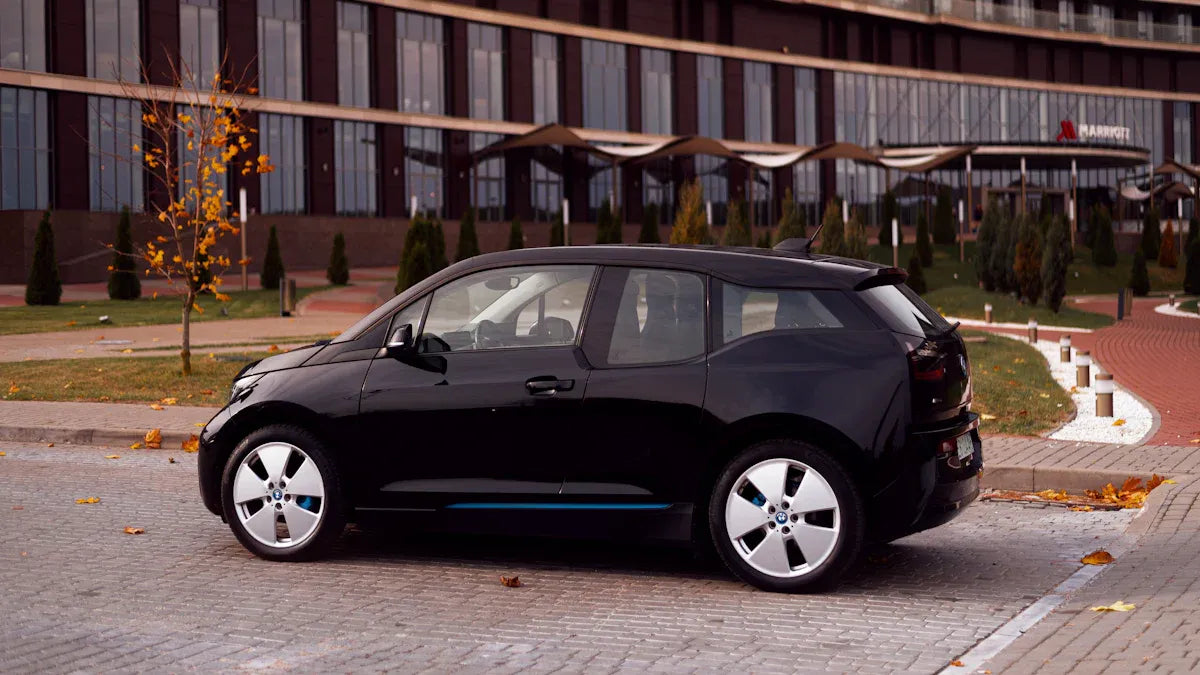
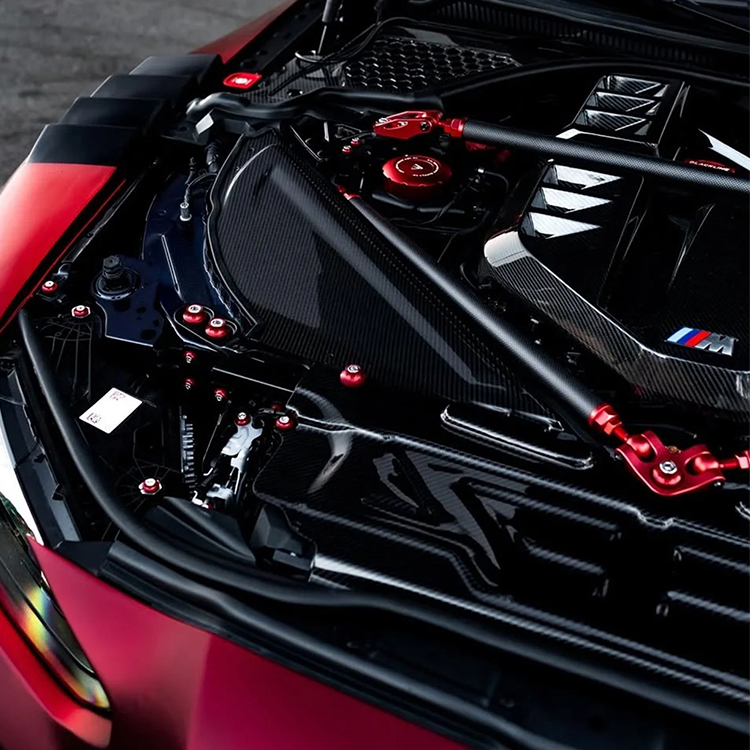
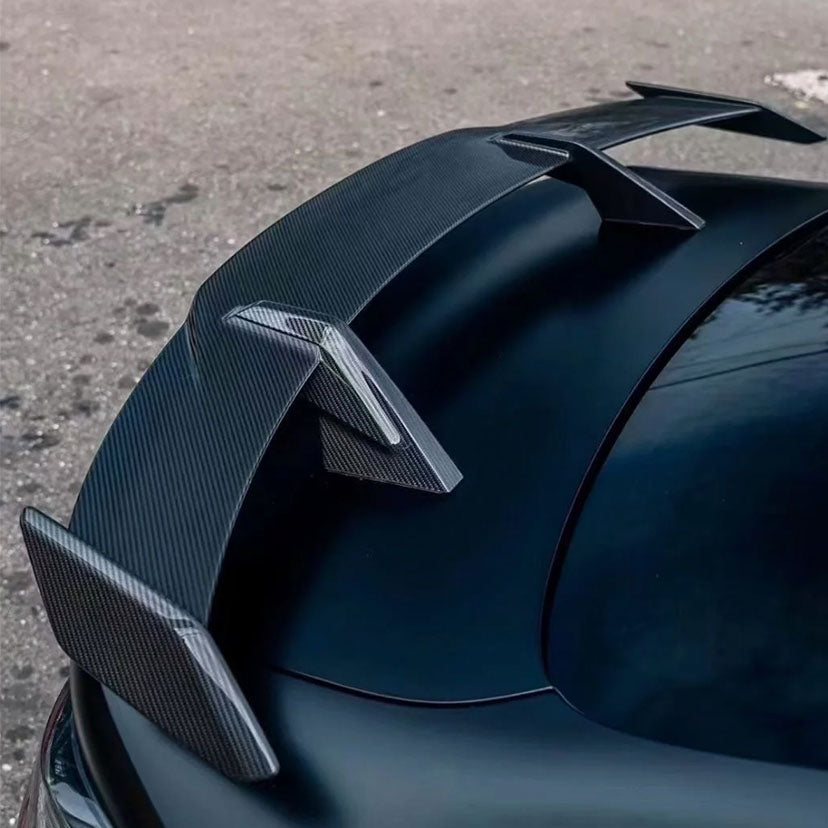
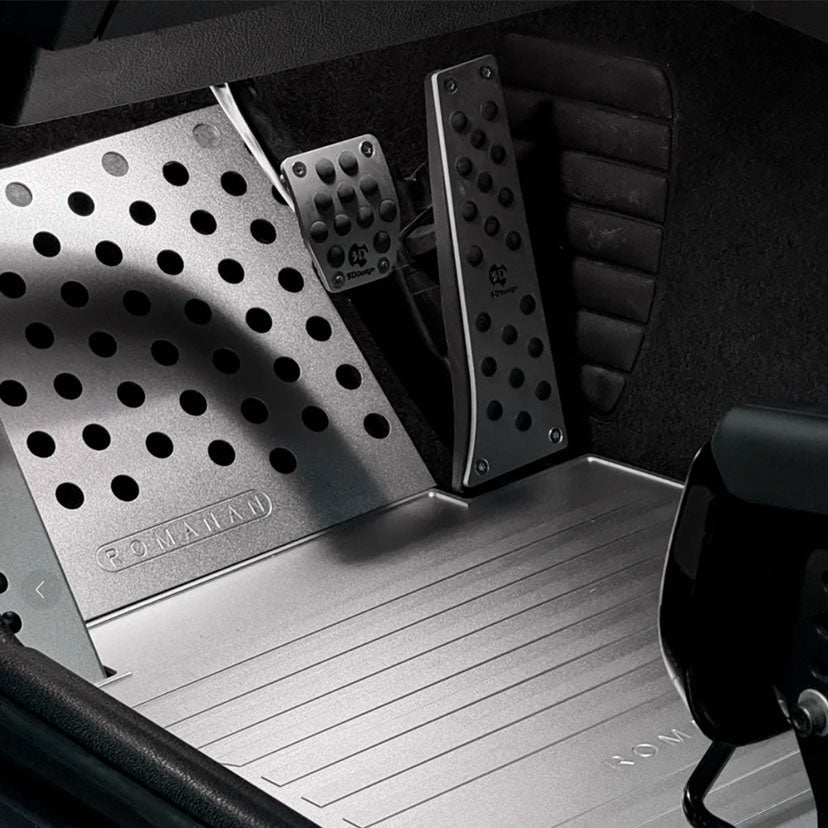

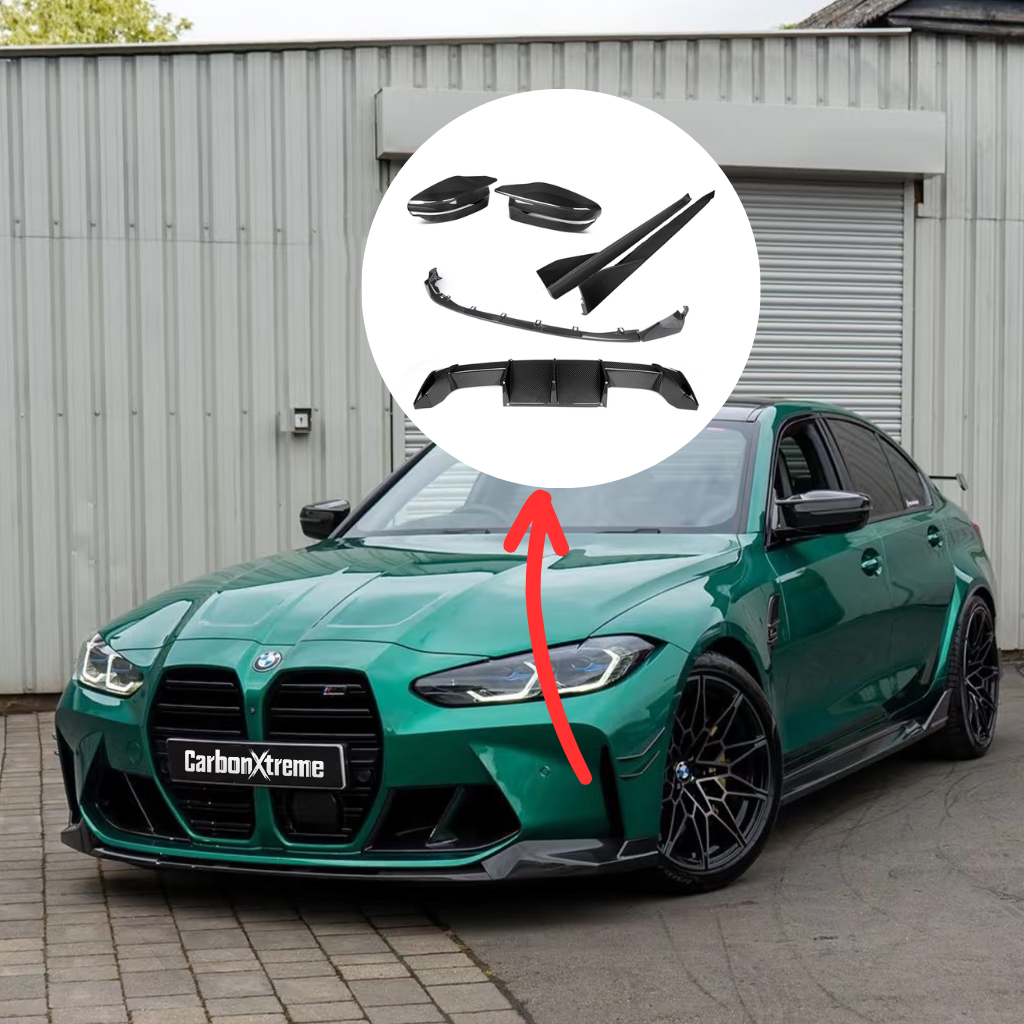
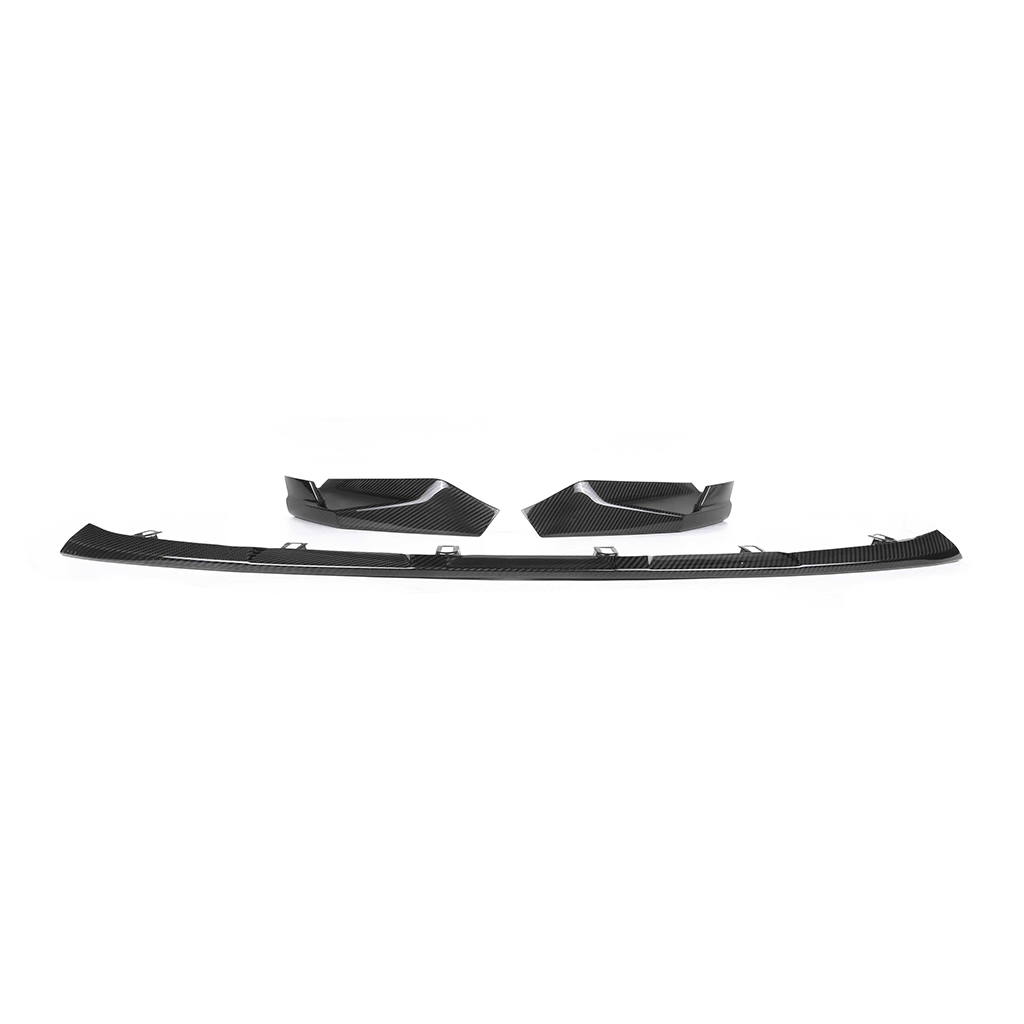
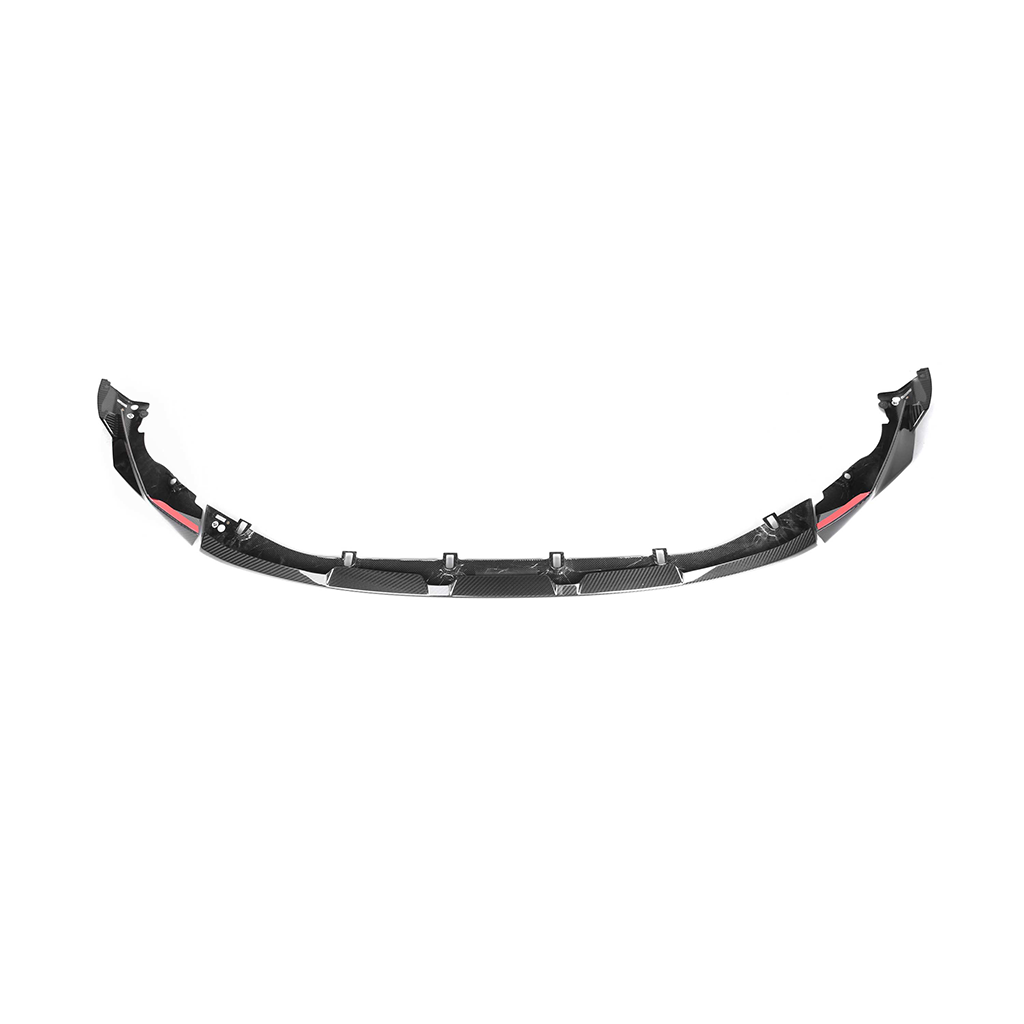
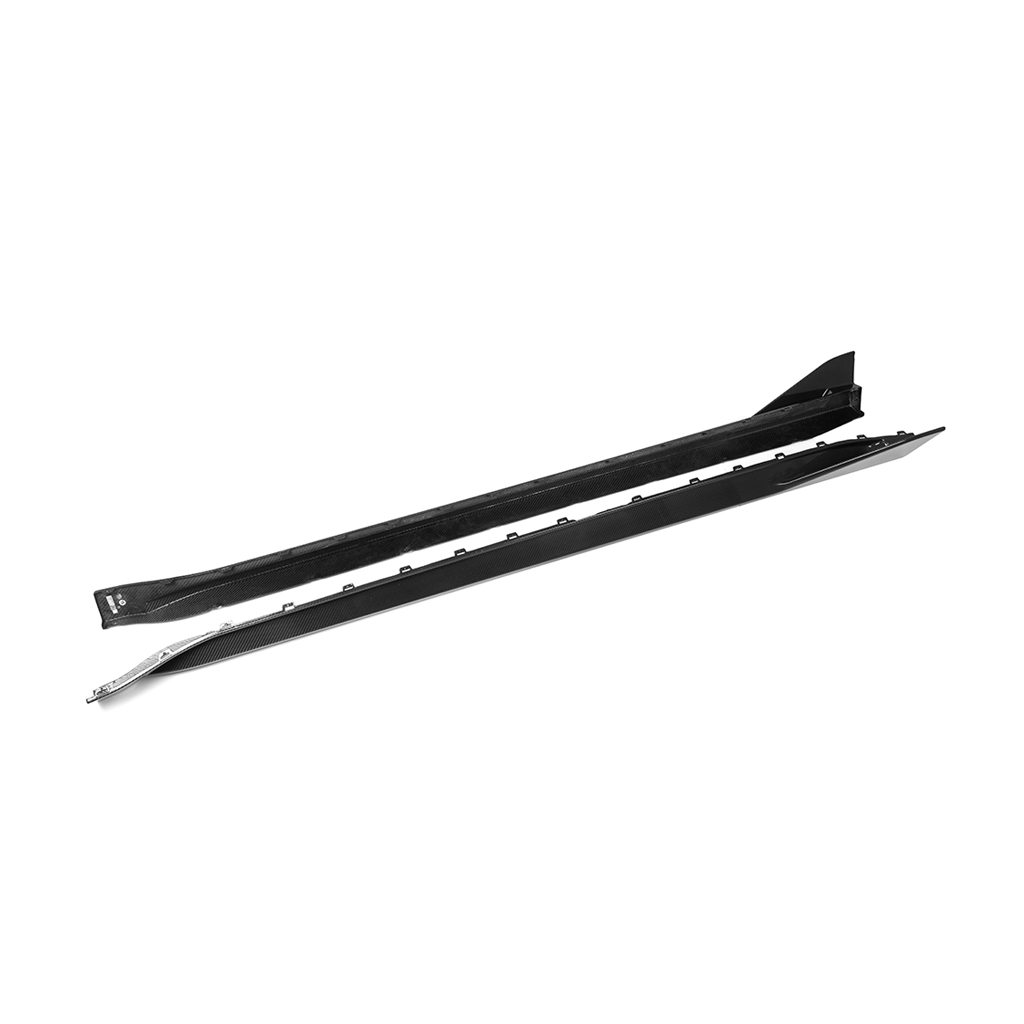
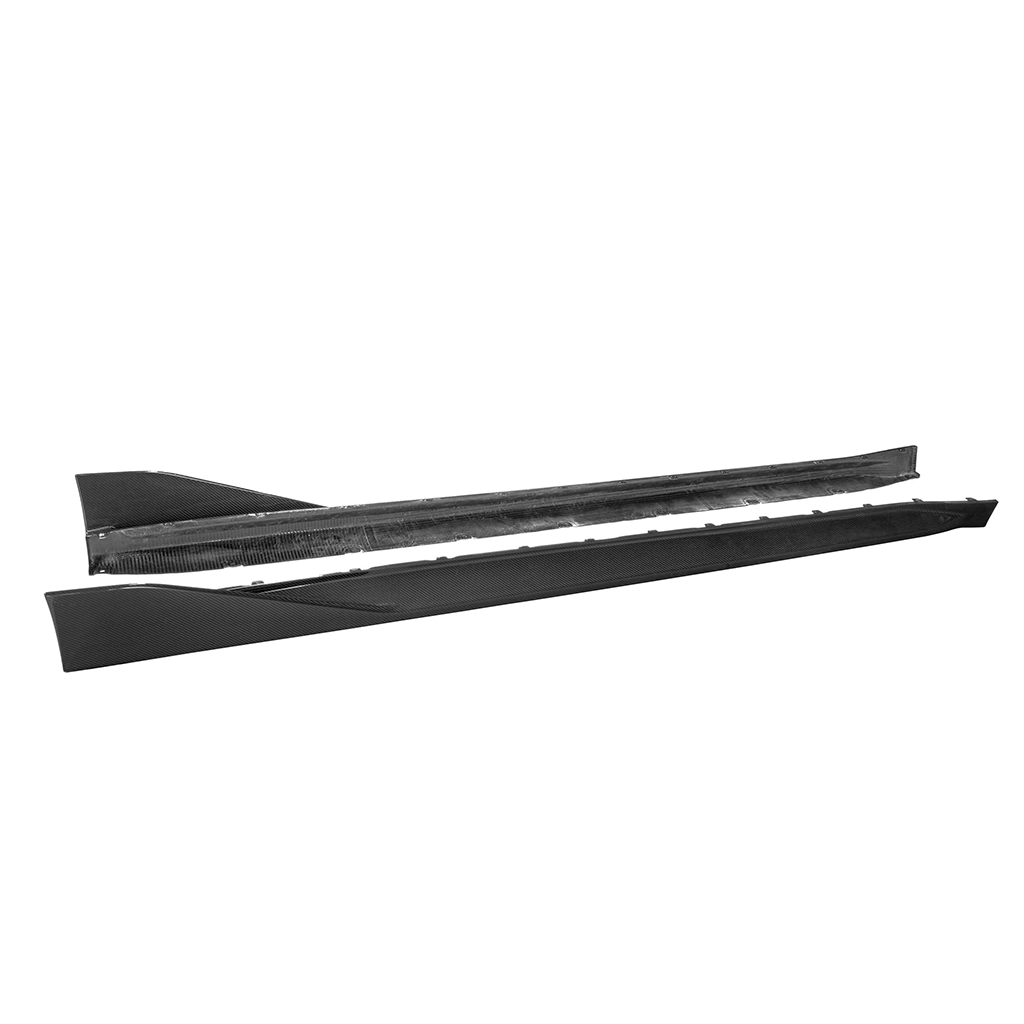
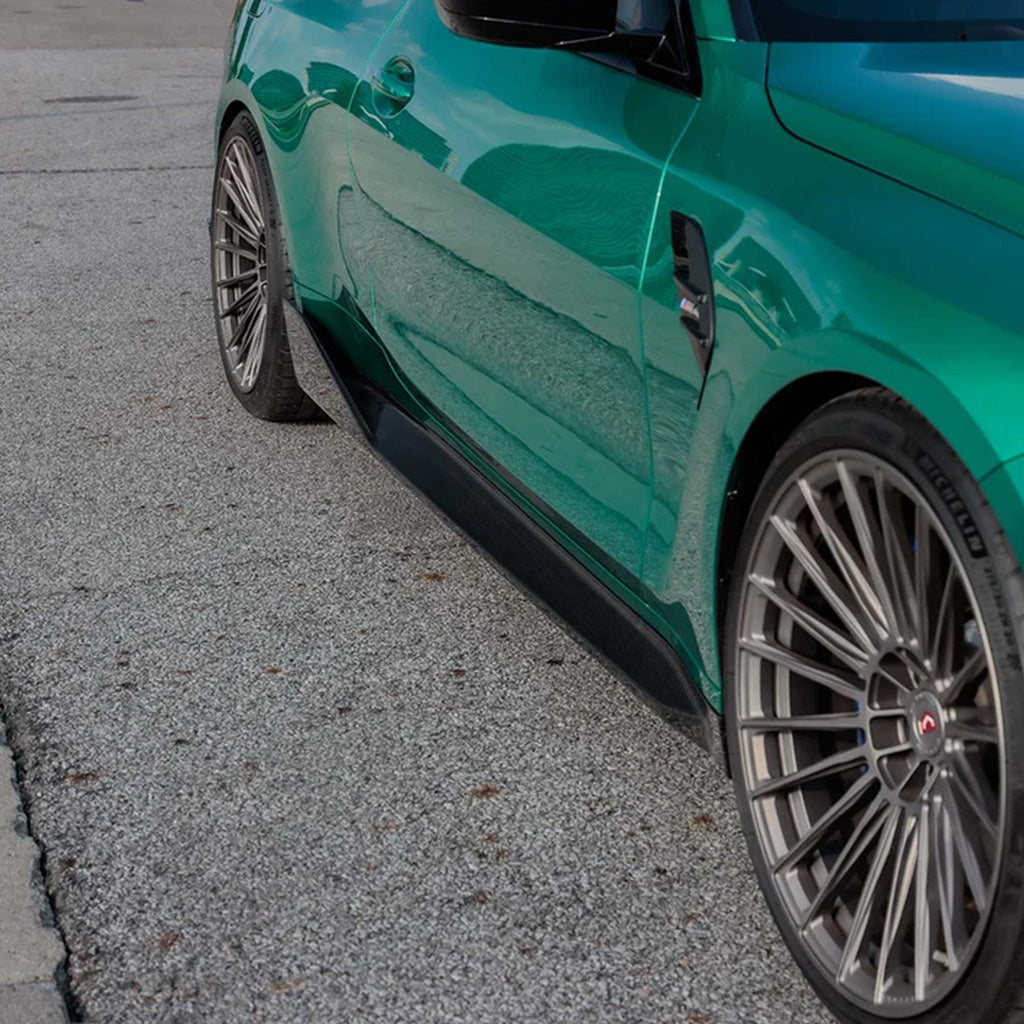



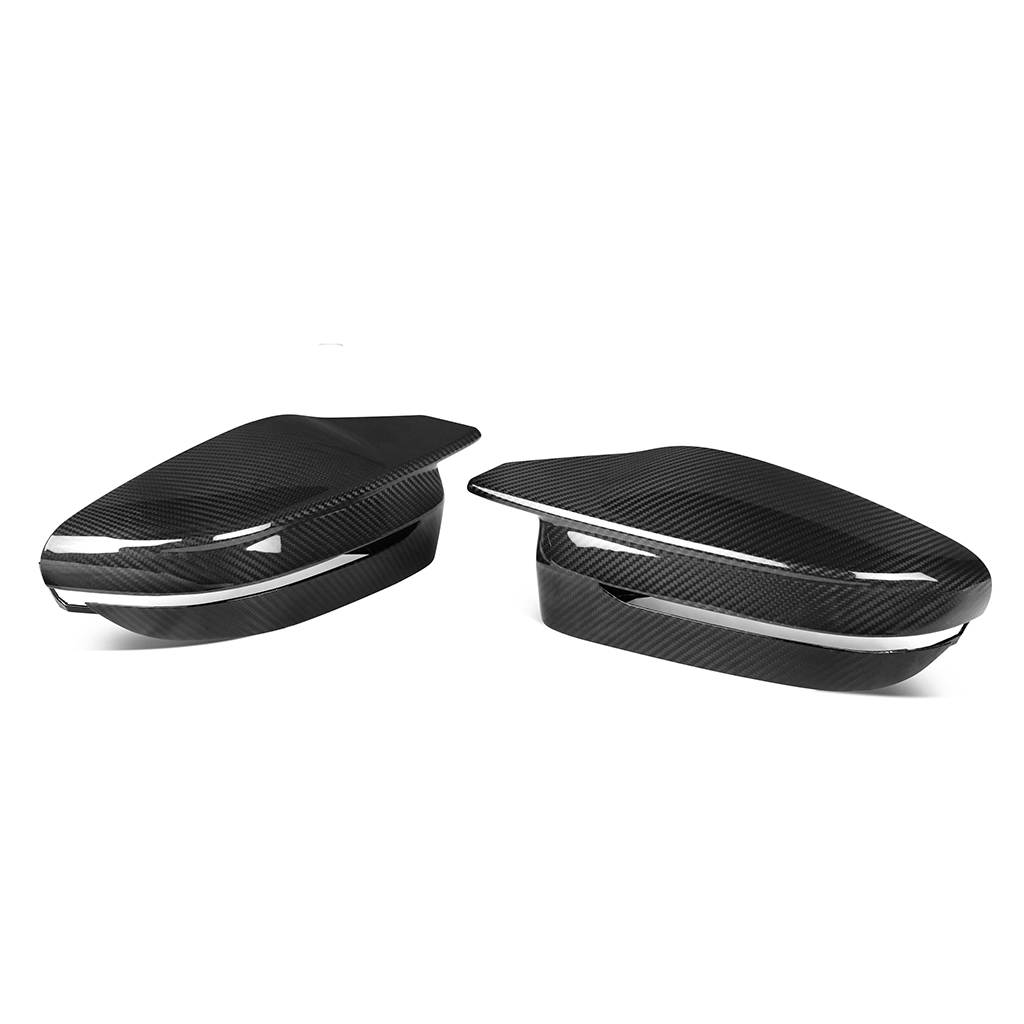
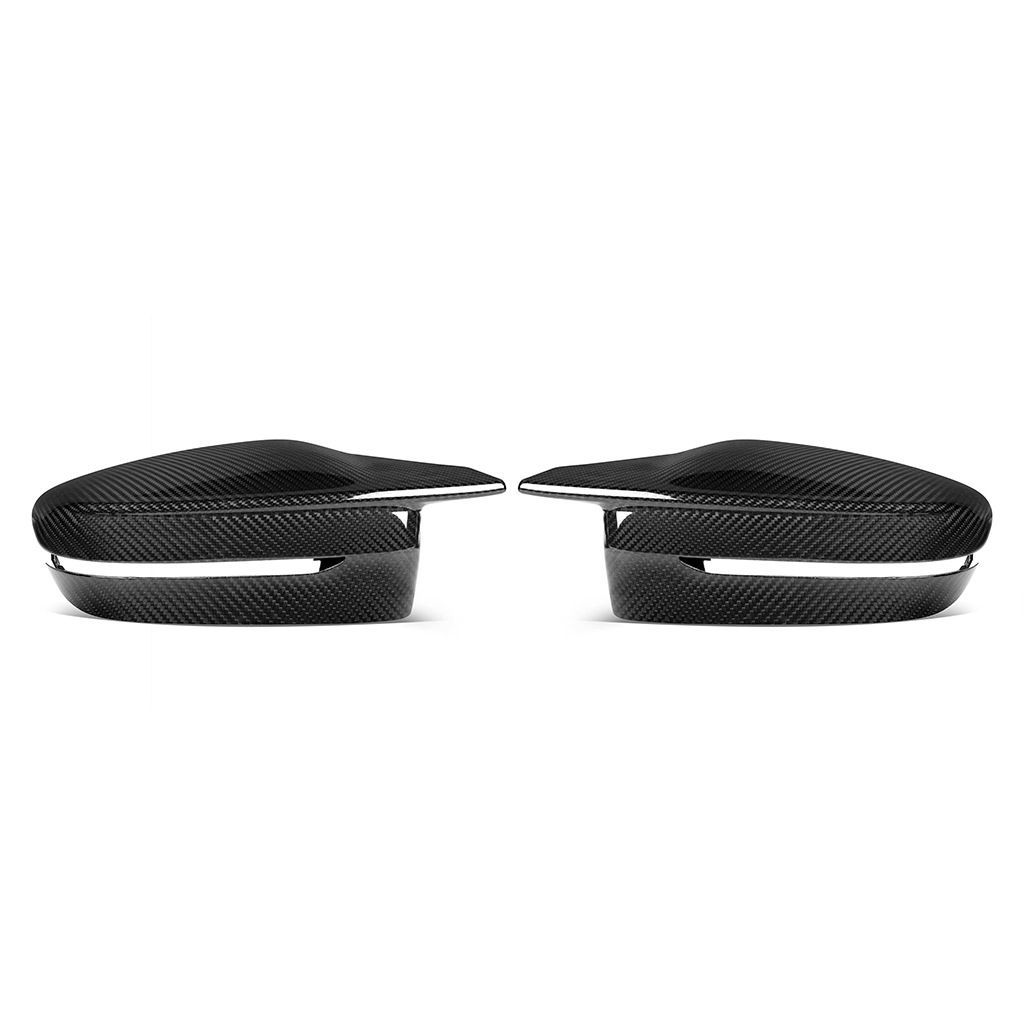
Share:
How Carbon Fiber is Revolutionizing BMW Cars in 2025
Best BMW M leather and carbon steering wheels of 2025